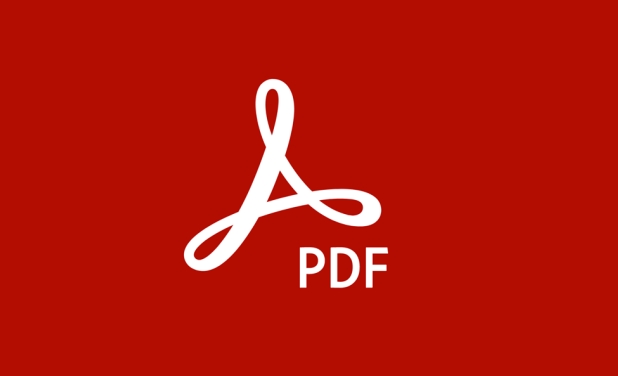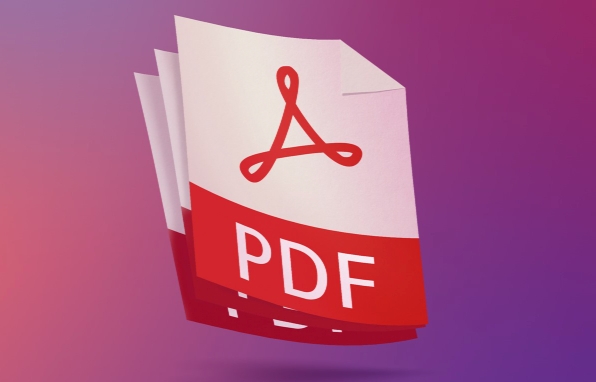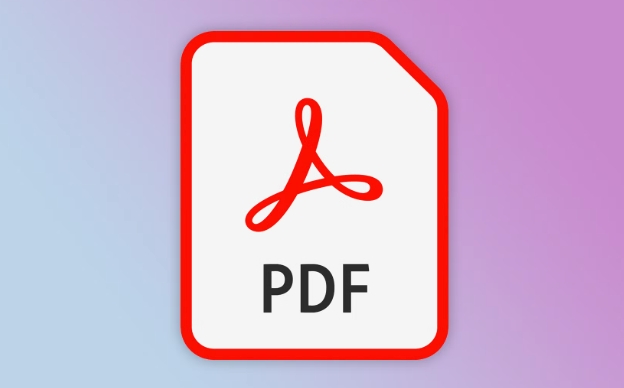To edit a PDF in Adobe Acrobat, open the file in Acrobat Pro and use the “Edit PDF” tool to modify text, images, or page order. 1. To edit text, click on the text block after OCR processing if necessary, then delete, add, or overwrite content. 2. For images, select the object with the “Edit PDF” tool and move, resize, delete, or replace it using the “Add Image” function. 3. For scanned documents, apply OCR via the “Scan & OCR” tool to make text selectable and editable. 4. Use the “Organize Pages” tool to reorder or delete pages by dragging thumbnails or clicking the trash icon. With these steps, editing PDFs becomes efficient and manageable.

Editing a PDF in Adobe Acrobat isn’t always as straightforward as editing a Word document, but it’s definitely doable. If you’ve ever tried to make a quick change to a PDF and found yourself stuck, you're not alone. The good news is that with the right tools and steps, you can edit text, images, and even reorganize pages without too much hassle.

Here’s how to actually get things done when editing a PDF using Adobe Acrobat.

How to Edit Text in a PDF
Once you open your PDF in Adobe Acrobat Pro (not the free Reader), the first thing you might want to do is edit some text — like fixing a typo or updating a date.
- Click on the "Edit PDF" tool in the right-hand pane.
- Wait a second while Acrobat processes the file — especially if it's a scan, it may need OCR (more on that later).
- Once ready, click anywhere on the text block you want to edit.
- You’ll see the text highlighted and editable. You can delete, add, or overwrite text just like in a word processor.
- Font size and style usually stay consistent, though you can tweak them if needed.
Keep in mind: the more complex the layout, the harder it is for Acrobat to treat text as individual blocks. If things look off after editing, try selecting smaller sections at a time.

Editing Images or Objects in a PDF
Sometimes you need to swap out an image or remove something from the page — maybe a company logo changed, or there's a placeholder graphic you want to replace.
- Open the "Edit PDF" tool again.
- Click on the image or object you want to edit. You'll see a blue bounding box appear.
- You can move, resize, or delete it directly.
- To replace an image:
- Delete the existing one
- Go to Tools > Edit PDF > Add Image
- Choose the new file and place it where you want
Just be careful — resizing too much can distort the image quality, especially if it wasn't high-res to begin with.
Handling Scanned PDFs or Non-Selectable Text
This is a common issue: you open a PDF and can't select any text. It’s probably a scanned document, meaning each page is basically a picture.
To fix this:
- Use the "Scan & OCR" tool in Acrobat.
- Run "Recognize Text" using the default settings unless you have specific language needs.
- After OCR completes, go back to "Edit PDF" — now the text should be selectable and editable.
OCR isn’t perfect, so double-check anything that looks odd after conversion. Numbers and unusual fonts sometimes trip it up.
Reordering or Deleting Pages in a PDF
You don’t always need to edit content — sometimes you just want to rearrange or trim pages.
- Open the “Organize Pages” tool.
- Thumbnails of all pages will show up on the right.
- Click and drag to reorder them.
- Click the trash icon to delete pages you don’t need.
If you’re combining multiple PDFs, this is also a great way to merge and sort them into one clean document.
Adobe Acrobat gives you solid PDF editing capabilities, but it helps to know what you're working with — whether it's plain text, an image, or a scanned document. Once you understand which tool to use and when, making changes becomes much smoother.
That’s pretty much it — nothing magical, just knowing the right buttons to press.
The above is the detailed content of How to edit a PDF in Adobe Acrobat?. For more information, please follow other related articles on the PHP Chinese website!

Hot AI Tools

Undress AI Tool
Undress images for free

Undresser.AI Undress
AI-powered app for creating realistic nude photos

AI Clothes Remover
Online AI tool for removing clothes from photos.

Clothoff.io
AI clothes remover

Video Face Swap
Swap faces in any video effortlessly with our completely free AI face swap tool!

Hot Article

Hot Tools

Notepad++7.3.1
Easy-to-use and free code editor

SublimeText3 Chinese version
Chinese version, very easy to use

Zend Studio 13.0.1
Powerful PHP integrated development environment

Dreamweaver CS6
Visual web development tools

SublimeText3 Mac version
God-level code editing software (SublimeText3)
 How to transfer an Adobe Acrobat license to a new computer?
Jul 04, 2025 am 12:01 AM
How to transfer an Adobe Acrobat license to a new computer?
Jul 04, 2025 am 12:01 AM
To transfer the Adobe Acrobat license to a new computer, you must first log out on the old device and release the activation permission, and then complete the activation with the new computer login account. The specific steps are: 1. Open Acrobat on the old computer and click on the avatar or "Help" > "Log out" to log out; 2. Download and install Acrobat for the new computer and log in with the original account to automatically identify the license; 3. If the activation fails, check the network, clear the cache, unbind the old device through the Adobe account page, or contact customer service to solve the problem. The key point is to ensure that the old device has been logged out, clear the local cache and update the online device list before the migration can be completed smoothly.
 How to create a custom brush in Photoshop
Jul 08, 2025 am 01:01 AM
How to create a custom brush in Photoshop
Jul 08, 2025 am 01:01 AM
The steps to create a custom brush in Photoshop are as follows: 1. Select a pattern with clear edges and suitable for brushes, such as hand-painted textures or photo parts, and adjust it to the appropriate size; 2. Use the "Magic Wand Tool" or "Quick Selection Tool" to remove the background to ensure that the pattern is in an independent selection; 3. Create a basic brush through "Edit > Define Brush Presets"; 4. Adjust the parameters such as "Shape Dynamic", "Scatter", "Text" and "Transfer" in the "Brush" panel to make the strokes more natural; 5. Finally, click "Save As Brush" to save as a .abr file for convenience of subsequent use and sharing.
 How to use the quick selection tool in Photoshop
Jul 06, 2025 am 12:01 AM
How to use the quick selection tool in Photoshop
Jul 06, 2025 am 12:01 AM
Photoshop's quick selection tool is suitable for selecting areas with similar colors and clear boundaries. The usage methods include: 1. Find and activate the tool, right-click or long-press to switch or press the shortcut key W to ensure that the layer is unlocked; 2. Adjust the brush size, combine the Alt or Option key to switch the selection mode, Shift key to add selection, and improve accuracy through the option bar setting sampling method; 3. Use the "Select the Subject" function to assist in selection, and then manually optimize edge details, especially suitable for portraits or product images.
 How to recover a corrupted AutoCAD file?
Jul 09, 2025 am 01:16 AM
How to recover a corrupted AutoCAD file?
Jul 09, 2025 am 01:16 AM
When AutoCAD file is corrupted, you can take the following steps to try to restore: 1. Check the automatic backup of the file, check whether there is a .bak or .sv$ file in the folder where the original .dwg file is located, and rename the .bak file to .dwg to open it; 2. Use the RECOVER command to try to repair the file, and if it fails, use the -OPEN command to open the file for partial recovery; 3. Use third-party tools such as DataNumenDWGRepair, RecoveryToolboxforDWG, etc. to deal with seriously damaged files. To prevent future damage, you should save regularly and use "Save As" to refresh the file structure, keep the software updated, avoid saving through network drives, enable automatic save and set up
 How to fix remote desktop connection issues
Jul 08, 2025 am 01:03 AM
How to fix remote desktop connection issues
Jul 08, 2025 am 01:03 AM
Remote Desktop connection problems can be checked through the following steps: 1. Check the network and firewall settings to ensure that the TCP3389 port is open; 2. Confirm that the remote desktop function is enabled and supported by non-home version systems; 3. Verify user permissions and belong to the "RemoteDesktopUsers" group or administrator; 4. Handle black screen or lag, adjust the display options or restart the remote computer. Check them one by one in order, and most problems can be solved.
 How to remove password protection from a PDF in Adobe Acrobat?
Jul 05, 2025 am 12:36 AM
How to remove password protection from a PDF in Adobe Acrobat?
Jul 05, 2025 am 12:36 AM
To remove PDF password protection, use Adobe AcrobatPro and have the document owner password. The steps include: 1. Open Adobe AcrobatPro and select a password-protected PDF file; 2. Enter the correct owner password; 3. Go to "Tools" > "Protection" > "Encryption" > "Remove Security"; 4. Click "OK" in the pop-up window to confirm the removal. If AcrobatPro is not available, you can ask others for assistance or use third-party decryption tools, but you need to pay attention to privacy risks. Common problems include invalid password, grayed out security settings, and prompting for passwords after removal. The solution is to check password input, try to convert file formats, or update software versions. If it cannot be resolved, please contact A
 How to get Photoshop for free
Jul 12, 2025 am 12:34 AM
How to get Photoshop for free
Jul 12, 2025 am 12:34 AM
Adobe Photoshop does not have a permanent free version, but can be legally used in the following ways: 1. The official website provides a 7-day free trial, complete functions but automatic renewal is required; 2. Use a simplified version based on the browser (Beta), which supports basic editing functions; 3. Students or teachers can obtain a full-featured version through the school education plan; 4. Consider alternative software such as GIMP, Photopea, Krita or Canva Pixlr to meet daily needs. The above methods can meet the needs of different users and ensure legal and compliant use.
 How to use the magnetic lasso tool in Photoshop
Jul 04, 2025 am 01:00 AM
How to use the magnetic lasso tool in Photoshop
Jul 04, 2025 am 01:00 AM
The magnetic lasso tool is suitable for images with obvious edge contrast. The key points include: 1. Use the shortcut key L or select the tool from the tool group. After clicking the starting point along the edge of the object, slowly move the mouse, and the tool will automatically absorb and add anchor points; 2. In terms of parameter settings, the width is recommended to be set to 10~30, and the edge contrast is default. The higher the frequency, the more anchor points; 3. In actual application, other tools can be replaced in the blurred edges. Zooming the image will help with accurate selection. If necessary, the anchor points can be adjusted manually. Mastering these skills can effectively improve the efficiency of the selection.






